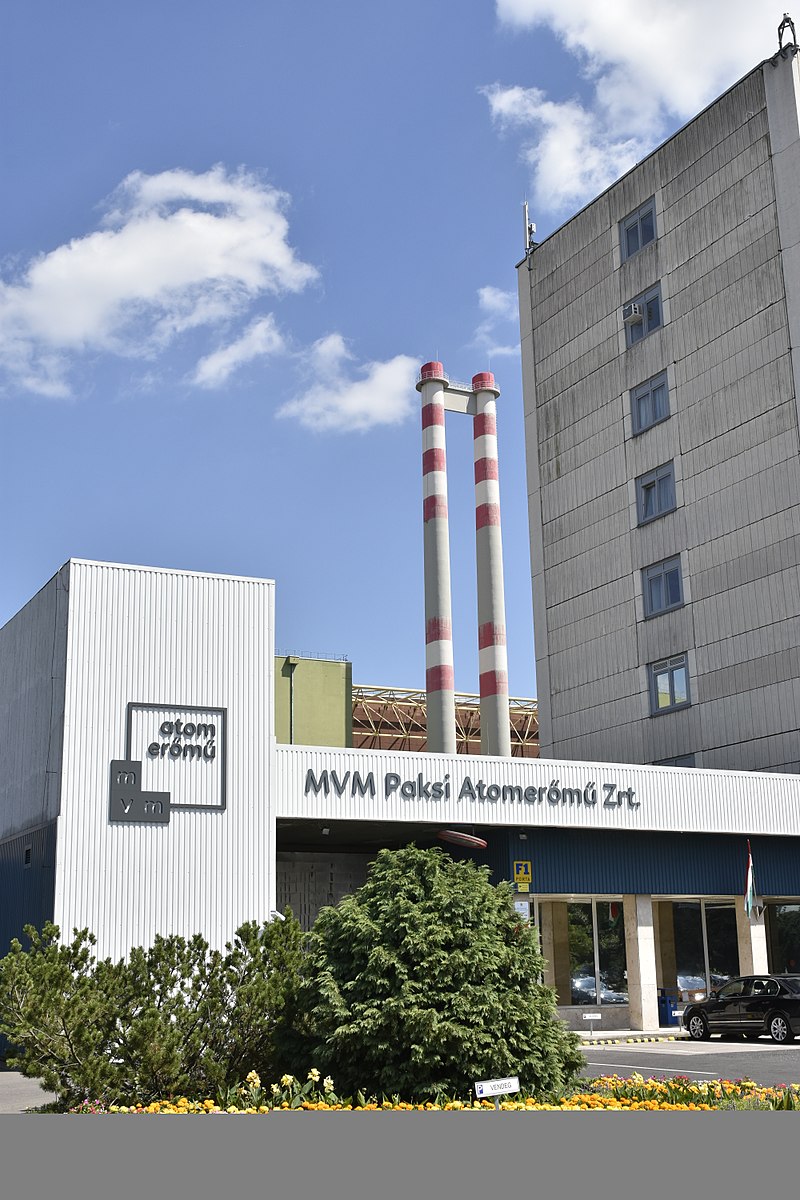The United States has issued a Russia-related general licence permitting certain transactions linked to Hungary’s Paks II civil nuclear power plant, easing earlier restrictions on dealings with Russian entities involved in the project, according to a notice published by the US Treasury’s Office of Foreign Assets Control (OFAC).
The general licence authorises specified financial transactions “related to the implementation” of Paks II, a Russian-built expansion of Hungary’s only nuclear power plant on the River Danube. It covers activities involving several Russian financial institutions, including Gazprombank, VTB Bank, Sberbank and the Central Bank of the Russian Federation, provided the transactions are strictly tied to the project.
The move marks a shift from an earlier US stance. A previous Russia-related civil nuclear general licence issued in December 2024 explicitly excluded any transactions connected with Paks II, meaning US persons and institutions were barred from dealings linked to the project even where other nuclear-related activities were permitted. The new measure, issued on 21 November, reverses that specific exclusion by creating a tailored exemption for Hungary’s project.
Paks II consists of two VVER-1200 reactors to be supplied and built by Russia’s state-owned nuclear corporation Rosatom under an engineering, procurement and construction contract signed in 2014 with Hungarian state company Paks II Nuclear Power Plant Private Limited Company. The expansion is largely financed through a Russian state loan, and is intended to replace ageing units at the existing Paks plant, which currently provides around half of Hungary’s electricity.
The licence follows a step-change in US–Hungarian nuclear cooperation. Earlier in November, during a visit by Hungarian Prime Minister Viktor Orbán to Washington, Budapest and Washington announced an agreement on nuclear energy that includes a contract for US-based Westinghouse to supply nuclear fuel to Hungary and expanded cooperation on spent fuel storage and small modular reactors. Hungarian officials have stated that Hungary will buy US nuclear fuel and deploy American technology for storing spent fuel for the Paks complex, alongside the ongoing construction work by Rosatom.
President Donald Trump and Prime Minister Orbán met at the White House on 7 November, with nuclear energy and sanctions exemptions high on the agenda. Trump said at the time that he was considering Hungary’s request for carve-outs from US sanctions on Russian energy, while Orbán referred to the need to secure exemptions to keep strategic projects, including Paks II, on track. The issuance of the Paks II licence two weeks later appears to give effect to that commitment in the civil nuclear field.
The Treasury document stresses that the authorisation is limited in scope. It allows transactions that are “ordinarily incident and necessary” to the Paks II project and that involve specified Russian financial institutions, but does not remove broader US sanctions related to Russia’s invasion of Ukraine. Other restrictions under US sanctions law, including prohibitions unrelated to the Hungarian project, remain in place.
The decision comes against a complex European backdrop. In September, the Court of Justice of the European Union annulled a 2017 European Commission decision that had approved Hungarian state aid for the Paks II expansion, ruling that Brussels had failed properly to assess whether the direct award of the main contract to Rosatom complied with EU public procurement rules. The judgment does not itself halt construction, but it adds legal uncertainty around the financing framework for the project within the EU’s internal market.
Hungary has consistently argued that Paks II is essential to its long-term energy security and to maintaining low-cost, low-carbon electricity generation. The government has confirmed that “first concrete” for the new units is scheduled to be poured by early February 2026, following years of delay linked to regulatory procedures, EU scrutiny and the impact of sanctions imposed after Russia’s full-scale invasion of Ukraine.
Budapest has also maintained close energy ties with Moscow, including long-term contracts for Russian gas and oil, even as other EU member states have sought to reduce dependence on Russian supplies. The new licence effectively allows US-linked financial channels to continue supporting a Russian-built nuclear project on EU territory, while the parallel Westinghouse fuel deal begins to introduce American technology into Hungary’s nuclear fuel cycle.
Officials in Washington have framed the broader civil nuclear measures as part of an effort to manage nuclear safety and non-proliferation risks, while preserving pressure on Russia’s wider energy sector. For Hungary, the combination of a US sanctions waiver tailored to Paks II and new contracts with American suppliers appears designed to preserve the Russian project while gradually diversifying fuel supply and technology inputs. Whether this dual track will satisfy both EU legal requirements and ongoing allied concerns over strategic dependence on Russian infrastructure remains a point of close monitoring in Brussels and other European capitals.
Rosatom: Why should the Russian nuclear sector be sanctioned? (Part 1)


